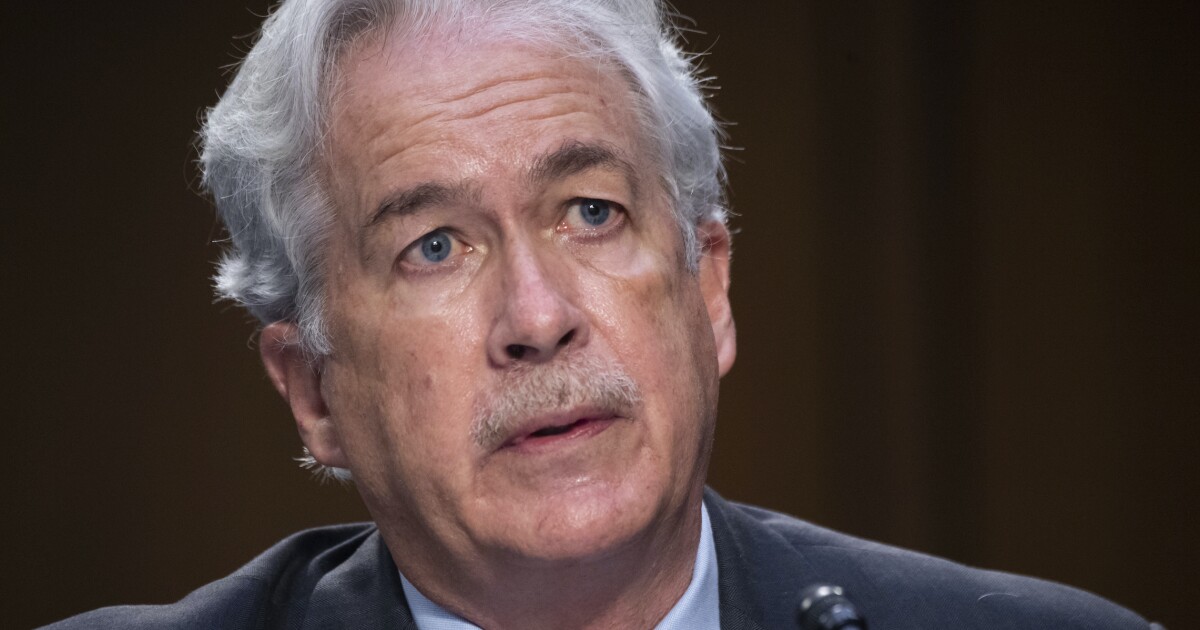

China will learn from Russia’s mistakes in Ukraine and seek to establish “overwhelming force” before mounting any invasion of Taiwan, the director of the CIA warned Wednesday.
“I think the Chinese leadership is trying to study the lessons of Russia’s invasion of Ukraine and what it tells them,” William Burns told the Aspen Security Forum. “I think our sense is that it probably affects less the question of whether the Chinese leadership might choose some years down the road to use force to control Taiwan but how and when they would do it.”
Burns rejected the idea that such a conflict would erupt this fall, as he assesses that Chinese President Xi Jinping still wants “a relatively predictable global economic landscape” over the coming months. And yet, the degree of U.S. misgivings about a potential war over Taiwan was apparent from the way the spy chief and other senior U.S. officials spoke about China’s ability to learn from Russia’s failure to achieve the rapid victory that Russian President Vladimir Putin expected.
“I suspect the lesson that the Chinese leadership and military are drawing is that you’ve got to amass overwhelming force if you’re going to contemplate that in the future,” Burns said.
CHINA ACCUSES NATO OF ‘PROVOCATIVE SPEECH AND ACTS’ DEEPENING RISK OF CONFLICT
Such is their anxiety about a possible war — that the idea of China taking the time to learn from the Ukraine war practically amounts to a consoling thought for the Biden administration.
“There are some lessons I think China should get from from what’s going on. One of them that I hope they get is that the economic consequences of an act of aggression are extreme,” Secretary of the Air Force Frank Kendall told the forum earlier Wednesday. “Another, for the senior political leadership for China, is that all those things [China’s] military is telling [Xi] about how great they are might not be as true as they would like them to be. I am sure that Mr. Putin was told how successful and how capable his military was, and that turned out not to be the case. So, hopefully, leadership at the senior level in China is being thoughtful about that.”
The relationship between the United States and China has turned adversarial in recent years due to a mix of economic and pandemic-related disputes sharpened by China’s efforts to acquire military control over the South China Sea and upgrade its nuclear forces and naval power. In that context, the strategic significance of Taiwan has loomed large, as the island democracy is an unofficial friend of the U.S., a key producer of high-tech semiconductor microchips, and a physical impediment to Beijing’s ability to project military power in the Indo-Pacific.
Chinese officials claim sovereignty over Taiwan, the last bastion of the nationalist forces they defeated when the Chinese Communist Party came to power in 1949. The mainland communist power has never ruled in Taipei, but it also has never renounced the option of using military force to subjugate the island, and Xi’s regime has accused the U.S. of risking a crisis by showing too much support for Taiwanese authorities.
“The United States is hollowing out and blurring up the One China policy,” Chinese Ambassador Qin Gang said during his appearance at the Aspen Security Forum. “It is substantially uplifting the official links with Taiwan by sending more officials to the island. It is sending sophisticated weapons to Taiwan and even claims that the U.S. will defend Taiwan militar[ily].”
“The United States doesn’t want to have a conflict with China on Taiwan,” Qin continued. “So ‘no conflict and no war’ is the biggest consensus between China and the United States. But we urge the United States to honor its commitments with actions and to fully implement the One China policy and the stipulations of China-U.S. joint communiques.”
Qin insisted that “the last thing we wish to do is to fight with our compatriots.” Burns maintained that “the risks of that become higher, it seems to us, the further into this decade that you get,” due to China’s preparations.
CLICK HERE TO READ MORE FROM THE WASHINGTON EXAMINER
“I wouldn’t underestimate President Xi’s determination to assert China’s control — the People’s Republic of China’s control — over Taiwan,” the CIA director said. “I think he’s determined to ensure that his military has the capability to undertake such an action should he decide to move in that direction.”







